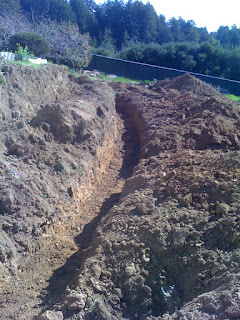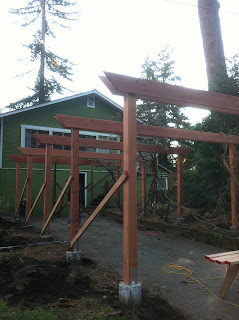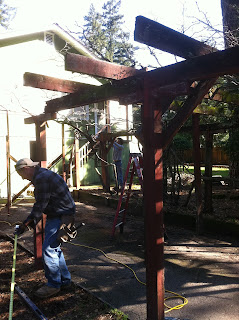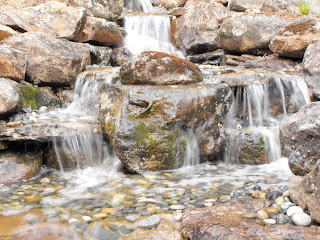Here's a bit of history on the art of Landscaping. Landscaping isn't just making a yard look better it really is an art form; or at least it is for us, our landscaping in Santa Cruz is more than rearranging dirt, it's art. (This article was taken from: Wikipedia.)
 |
| Thales the Father of Landscaping |
"Landscaping is both science and art. This requires both good observation and design skills. A good landscaper understands the elements of nature and construction, and blends them accordingly.
Thales, an early Greek
philosopher known for his view that "all is
water," spent a considerable time thinking about the nature and scope of landscaping. Some of his students believed that in order for human activity to be considered landscaping, it must be directed toward modifying the physical features of the land itself, including the cultivation and/or manipulation of plants or other flora. Thales rejected this notion, arguing that any aspect of the material world affecting our visual perception of the land was a proper subject for landscaping. Both
Plato and
Aristotle praised Thales' analysis as a model for philosophy. In the early 20th century, British philosopher
G.E. Moore cited Thales' reasoning as one of the few historical examples of how philosophical inquiry has led to genuine human understanding and progress.
Philosophers in the 17th century debated whether visual beauty was a necessary goal of landscaping. With the advent of the
positivists by the early 20th century, however, most western philosophers had rejected the notion of an objective
esthetic standard for any form of
art, including landscaping. Practitioners since the mid-20th century have experimented with jarring visual panoramas that are now generally accepted, at least in western societies, as falling within the scope of landscaping."
A yard isn't just a yard when we get done with it; it's a piece of art. Thales would be proud.





















